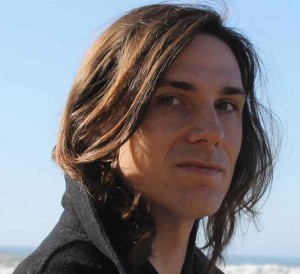
Chico State is hammering down old policies on how student clubs are allowed to organize, according to some clubs on campus.
A campus-wide email sent out during winter break re-enforced rules on fundraising and limitations on the total number of class units club officers can enroll in.
“I’ve been in this battle for a while since I became president,” said Chadwick McCready, senior biology major and president of Omicron Theta Epsilon, an honor society for the biological sciences. “Over the summer they said we couldn’t sell class lab manuals for cash anymore, it had to be sold through the Wildcat Card.”
Professors write the lab manuals then the society pays to print them, McCready said. Only cash was accepted until the university had them switch to charging students through their Wildcat Card.
Students buying lab manuals swipe their cards through a machine loaned by Associated Students and then the money transfers into a private state account.
“They feel that it’s unsafe to not know what we’re doing with our funding and since the lab manuals are a course fee, they want to make that part of the school’s funding so it goes into a private account, which is still our money, but they have full watch over it,” McCready said. “We have to give them a proposal for what we’re spending, then we get reimbursed, and when we do, we get charged for it.”
The A.S. charges two percent of the amount the students take during each transaction.
Omicron Theta Epsilon is the only club that had to switch to the Wildcat Card system, even though other clubs sell lab manuals, McCready said.
Omicron fundraises for biology seminars, grants and scholarships. They also organize field trips and science fair workshops with Notre Dame High School every semester.
The students had to stop selling coffee and doughnuts. They had been selling the coffee and doughnuts for 34 years.
“The idea for selling food wasn’t so much about the profits but to build rapport with faculty and other students,” McCready said.
It’s not just about the money, said Mary Wallmark, program coordinator at Student Life and Leadership.
She also manages free speech and advocacy policies, commercial underwriting on campus and policies on time, place and manner issues. Wallmark pushed the re-enforcement of the policies this semester.
The issue came to her attention when the Office of Business and Finance contacted her about the sales activity in Holt Hall and the coffee cart outside O’Connell Technology Center.
The sales in Holt Hall did not meet fire- safety compliance and the coffee cart did not have a commercial food license or a California food-handlers certificate.
“We work directly with the clubs, so our first goal was to try to figure out what we can do and we weren’t able to come up with a proposal that could step over the top of these issues of policies we needed to enforce,” Wallmark said. “That doesn’t mean we’ve given up on that entirely.”
The policies weren’t written anywhere so that people could see them, so Wallmark posted them on the Student Life and Leadership website.
Wallmark is trying to figure out a partnership between clubs and the A.S., the only certified food vendor on campus. The A.S. provides food service but also make revenue in order to fund student programs.
The A.S. has suffered cuts to its programs because of revenue losses from the bookstore and a reluctance to increase student fees, so revenue from food sales has become even more important, Wallmark said.
The complaint came in October of last year and it was necessary to respond within a reasonable time, she said. Waiting one year to re-enforce the policies was not an option.
Wallmark was invited to a University Chairs and Administration meeting to address the food sales concern, where she also indicated that there is an established chancellor’s policy about the class unit limitation for club officers.
According to CSU policies, the president and treasurer of a recognized organization must have a 2.0 GPA, carry at least 6 units and cannot exceed a total of 150 units in enrollment.
“Most degrees require 120 to 125 units, so once you get to 150 units, there’s some extenuating circumstances about why you’re still in college,” Wallmark said.
About 15 of the 180 recognized campus clubs had presidents or treasurers who exceeded the 150 units.
The policy was released in 2006 and the unit maximum was part of the mission to encourage graduation, Wallmark said.
“Don’t stay because you love being president so much, don’t get distracted because you love that position so much or that position could be really demanding of you,” she said. “Once you reach 150 units, you’re on the clock academically.”
Transfer students who have more than 150 units who are trying to maintain their officer positions have written to the university to reconsider the policy.
“The members elected me because they thought I’d be a good president,” said Jimmy Smith, a senior international relations and history major and president of Student Veteran Organization. “This is my first chance to be president of SVO and it’s unfortunate that I’d be automatically disqualified.”
Smith served in the Marines prior to attending Chico State. He accrued about 190 units from his classes in the military and only some counted towards his G.E. requirements. He wrote to the vice president of student affairs about one week ago asking to be exempt from the policy.
“When vets take on an officer role, it helps them transition from a military to civilian- type organization, which gives them qualities to lead projects and organizations effectively and it teaches you how to deal with people successfully outside the military,” Smith said. “Students need an opportunity to give back to the community and develop life skills and leadership.”
Christine Lee can be reached at [email protected] or @leechris017 on Twitter.








